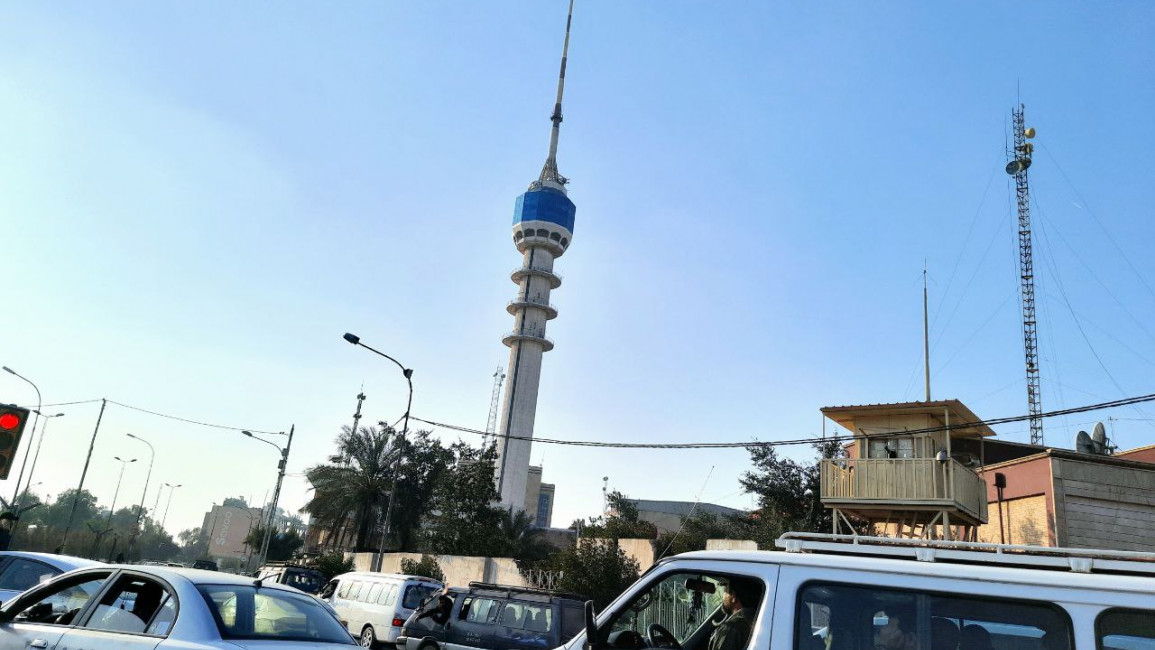Corruption concerns cast shadow over Iraq's ambitious Baghdad metro project
Iraq's transportation sector is poised for significant advancement with the unveiling of two major projects: Baghdad's metro system and a high-speed railway linking Najaf and Karbala. However, Iraqi observers express concern that the government's choice to partner with potentially inexperienced companies has sparked criticism, with some speculating that corruption may be a motivating factor behind these projects.
Iraq's Prime Minister Mohammed Shia al-Sudani, on 8 February, during the investment opportunities launch event for the two projects, emphasised the importance of these ventures. "The Baghdad metro project, spanning 148 km with seven lines, aims to significantly improve transportation for the capital's population, which exceeds 8 million. The project will cover most areas of Baghdad and establish connections with newly developed cities such as Al-Jawahir, Ali Al-Wardi, and New Sadr City," al-Sudani said.
He also indicated that these projects hold substantial economic benefits and significant opportunities for serious private-sector involvement.
On Wednesday, the media office of Iraq's PM issued a statement clarifying the bidding process of the two mega projects after Iraqi observers and social media activists criticised the government for mishandling the strategic projects of inexperienced companies.
According to the clarification, the two projects have been accredited to a consortium composed of the Malaysian HSS company and its regional partner accredited to implement its projects in the Middle East and North Africa region (CHSS).
At its regular session on 26 December 2023, the Iraqi cabinet issued Decision No. 23753, in which nine hundred and thirteen billion and eight hundred and four million Iraqi dinars were allocated to the investment budget of Baghdad's municipality.
The government also claimed it secured contracts with HSS and CHSS for the two strategic projects, leveraging "advanced international expertise at a reduced cost. A specialised agreement with the Consultative Alliance emphasises audit and supervision, guaranteeing cost savings and top-quality project specifications."
"After thorough analysis, the economic contract model was revised from government budget implementation to investment by international companies. This approach ensures that both projects are executed without burdening the government budget, departing from previous proposals that relied on government implementation," reads another part of the statement.
"After negotiations, the consulting contract's value was set at 0.6% of the total project value, below the government's maximum limit of 0.8%. Additionally, the project investor will cover the consulting contract amount in the future, relieving the government of financial burden," it added.
"Therefore, the government contracted with the global consulting consortium for an amount less than that approved in Cabinet Decision No. (23753), which was based on the previous economic model (government implementation)," the government clarified.
Basil Hussein, an Iraqi academic and head of Kulwatha Center for Studies and Measurement of Iraqi Public Opinion, in a post on X Thursday, 15 February claimed that if the consulting contract awarded to the HSS and the Malaysian CHSS, "[a]mounts to US$700 million and the total project cost is US$17.5 billion, this means that the percentage of the consulting contract from the total contract is 4%, not as announced by the government, which is 0.6% of the total contract value."
Iraq is reportedly contracting some companies from Lebanon and Malaysia to design metro Baghdad at a cost of ~ 1 billion dollars. The question is who these companies are & why not contracting a well-known company in this field at a reasonable price. There are many European…
— Murad Ismael (@murad_ismael) February 11, 2024
He also emphasised that the "consulting contract cost should have aligned with the percentage announced by the government, amounting to US$105 million. However, the declared consulting contract cost is approximately six times its actual price, as it pertains to a project valued at US$116 billion, not US$17.5 billion. Consequently, we urge the government to revoke this consulting contract based on the outlined reasons."
Iraqi MP's media office also called on the media to "ensure accuracy in reporting facts and to verify information from its official sources to avoid disseminating inaccurate information."
On his part, Murad Ismael, president and co-founder of Sinjar Academy, in a post on the X platform, claimed that the Iraqi government is engaged in hiring two 'Lebanese' and Malaysian companies to design the Baghdad metro, with an estimated cost of around US$1 billion.
He also raised concerns and questions regarding the identity of these companies and why a renowned entity in the field, mainly from Europe, such as German firms known for their expertise in this sector, was not chosen at a more reasonable price.
The concern arises regarding the identity of these companies and why a renowned entity in the field, mainly from Europe, such as German firms known for their expertise in this sector, was not chosen at a more reasonable price.
According to the CHSS's official website, it is a UAE-based company that "has grown organically over the last 15 years and now has offices in Dubai, Abu Dhabi, Ajman, and Sharjah."
Al-Sumaria News, an Iraqi outlet, has raised the question of how investors will spend nearly US$17.5 billion in Baghdad's metro to be paid off by Iraq over the next 23 years, per Iraqi government officials' statements.
Decades of war and corruption have made Iraq face serious infrastructure problems, including bad roads and outdated public transportation means.
Iraq ranked 154 out of 180 countries in Transparency International's corruption perceptions index in 2023.



